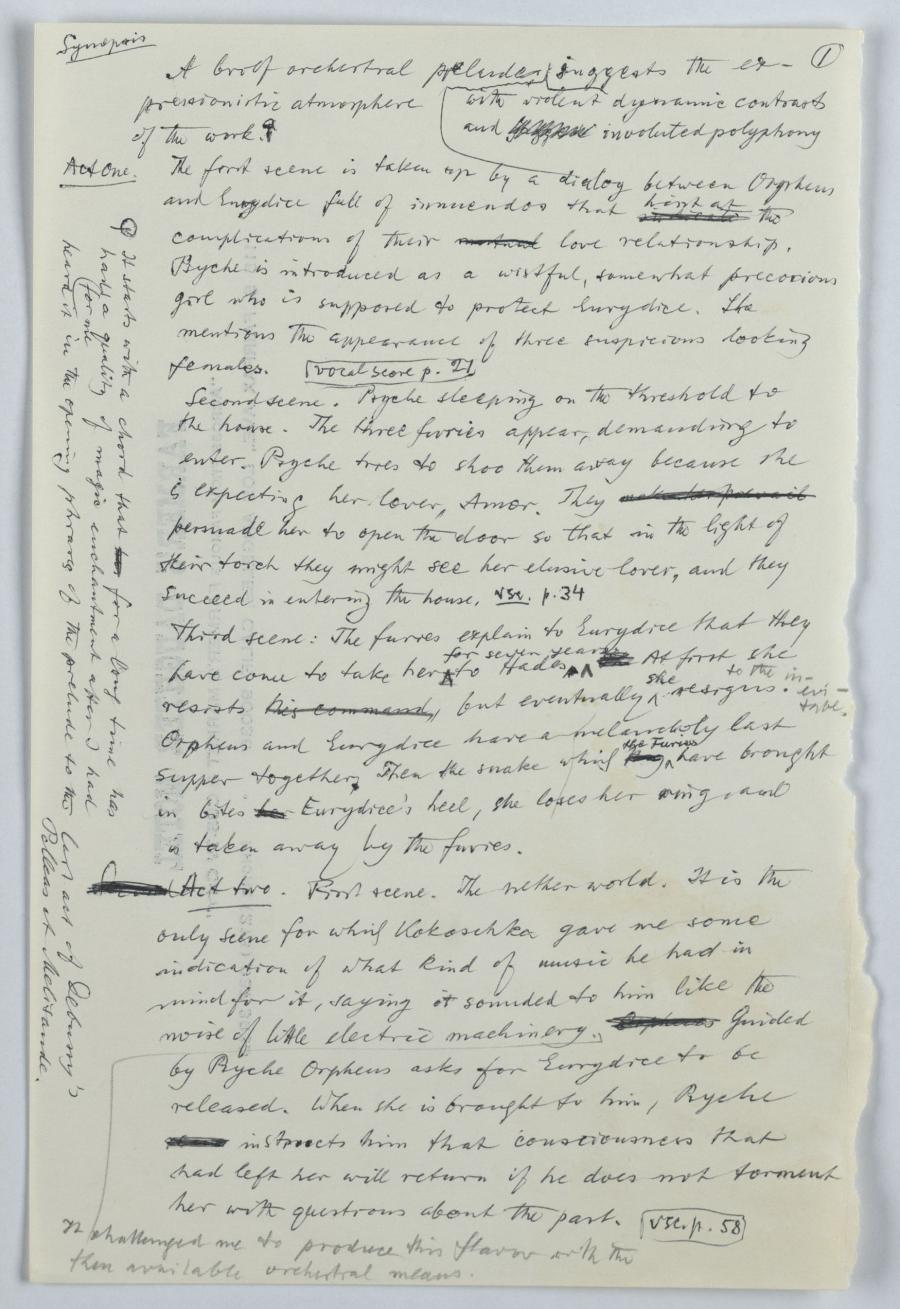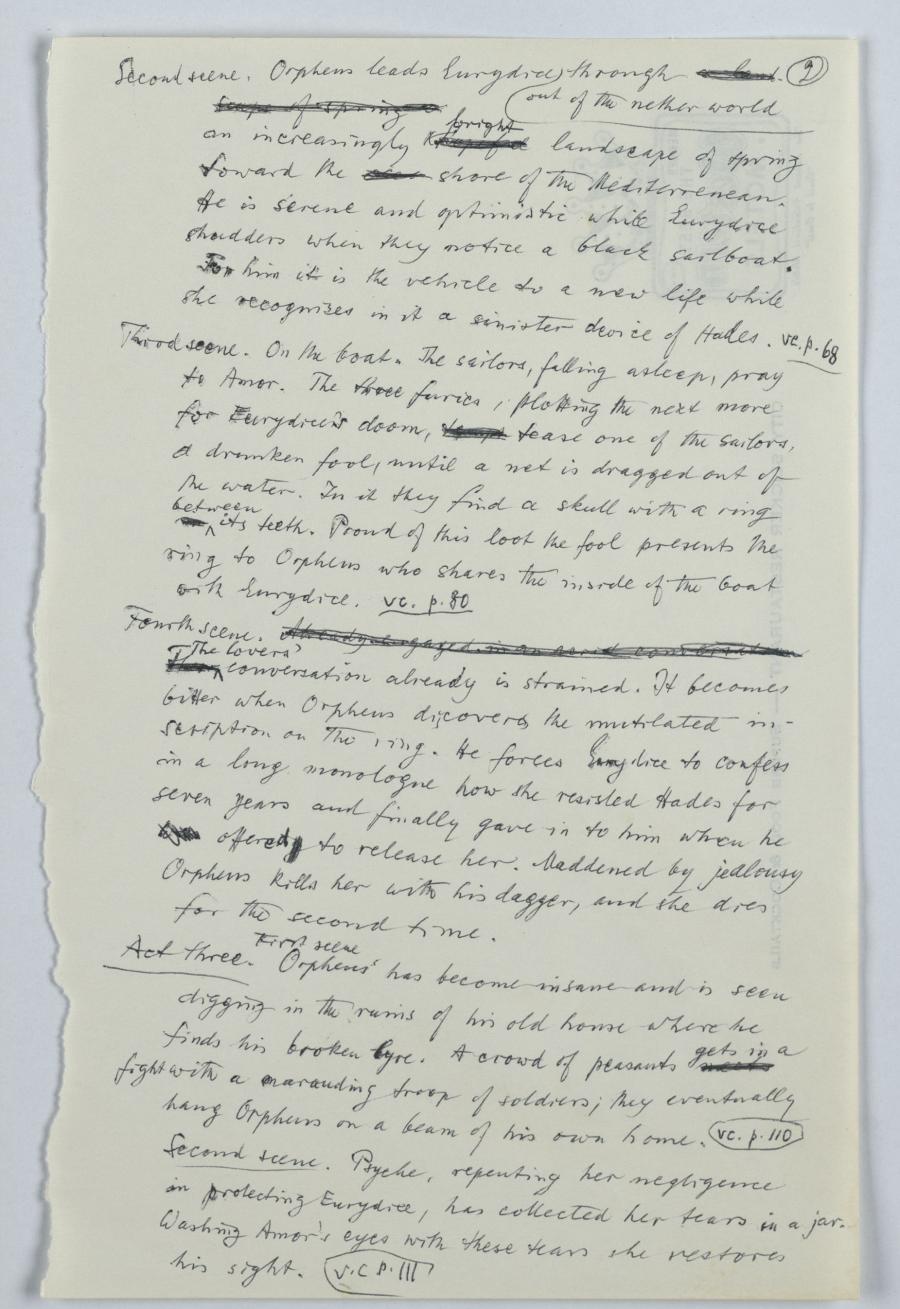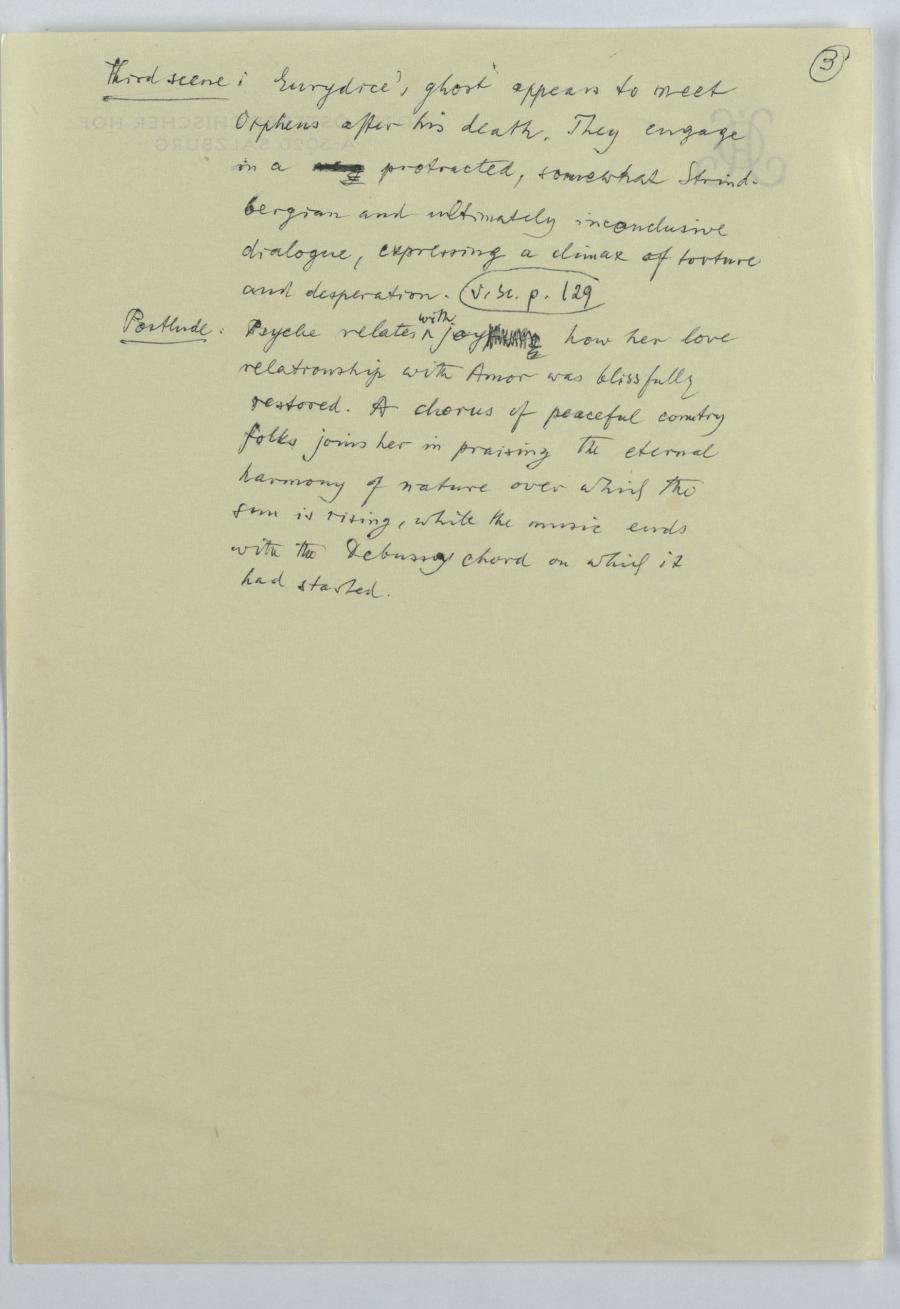1
Synopsis
A brief orchestral prelude suggests the ex-
pressionistic atmosphere
of the work.
with violent dynamic contrast
and has for a long time has
had for me a quality of magic enchantment after I had
heard it in the opening phrase of the prelude to the last act of Debussy's
Pelleas et Melisande.
Act One The first scene is taken up by a dialog between Orpheus
and Eurydice full of innuendos that indicate hint at the
complications of their mutual love relationship.
Psyche is introduced as a wistful, somewhat precocious
girl who is supposed to protect Eurydice. She
mentions the appearance of three suspicious looking
females. vocal score p. 21
Second scene. Psyche sleeping on the threshold to
the house. The three furies appear, demanding to
enter. Pyche tries to shoo them away because she
is expecting her lover, Amor. They make her prevail
persuade her to open the door so that in the light of
their torch they might see her elusive lover, and they
succeed in entering the house. vsc. p. 34
Third scene: The furies explain to Eurydice that they
have come to take her to Hades for seven years his command, but eventually she resigns. to the in-evi-table.
Orpheus and Eurydice have a melancholy last
supper together. Then the snake which they the Fairies have brought
in bites her Eurydice's heel, she loses her ring, and
is taken away by the furies.
Second Act two. First scene. The nether world. It is the
only scene for which Kokoschka gave me some
indication of what kind of music he had in
mind for it, saying it sounded to him like the
noise of little electric machinery. Orpheus Guided
by Psyche Orpheus asks for Eurydice to be
released. When she is brought to him, Psyche
instructs him that consciousness that
had left her will return if he does not torment
her with questions about the past. vsc. p. 58
It challenged me to produce this flavor with the
then available orchestral means.
(2)
Second seene, Orpheus leads Eurydice out of the nether world through a land-
scape of spring
an increasingly peaceful bright landscape of spring
toward the ocean shore of the Mediterranean.
He is serene and optimistic while Eurydice
shudders when they notice a black sailboat.
For him it is the vehicle to a new life while
she recognizes in it a sinister device of Hades. vc.p.68
Third scene. On the boat. The sailors, falling asleep, pray
to Amor. The three furies, plotting the next move
for Eurydice doom, tempt tease one of the sailors,
a drunken fool, until a net is dragged out of
the water. In it they find a skull with a ring
in between its teeth. Proud of this loot the fool presents the
ring to Orpheus who shares the inside of the boat
with Eurydice. vc. p. 80
Fourth scene. Already engaged in an acrid conversation
The lovers was offereding to release her. Maddened by jealousy
Orpheus kills her with his dagger, and she dies
for the second time.
Act three. First scene Orpheus has become insane and is seen
digging in the ruins of his old home where he
finds his broken lyre. A crowd of peasants meets gets in a
fight with a marauding troop of soldiers; they eventually
hang Orpheus on a beam of his own home. vc. p. 110
Second scene. Psyche, repenting her negligence
in protecting Eurydice, has collected her tears in a jar.
Washing Amor's eyes with these tears she restores
his sight. v.c. p.111
3
Third scene: Eurydice's, ghost appears to meet
Orpheus after his death. They engage
in a very protracted, somewhat Strind-
bergian and ultimately inconclusive
dialogue, expressing a climax of torture
and desperation. V. Sc. p. 129
Postlude: Psyche relates with joyfully how her love
relationship with Amor was blissfully
restored. A chorus of peaceful country
folks joins her in praising the eternal
harmony of nature over which the
sun is rising, while the music ends
with the Debussy chord on which it
had started.


